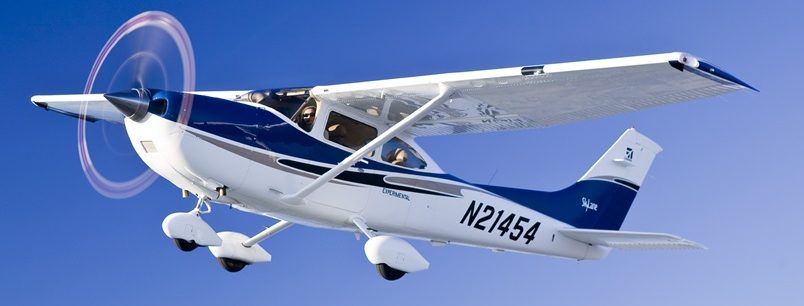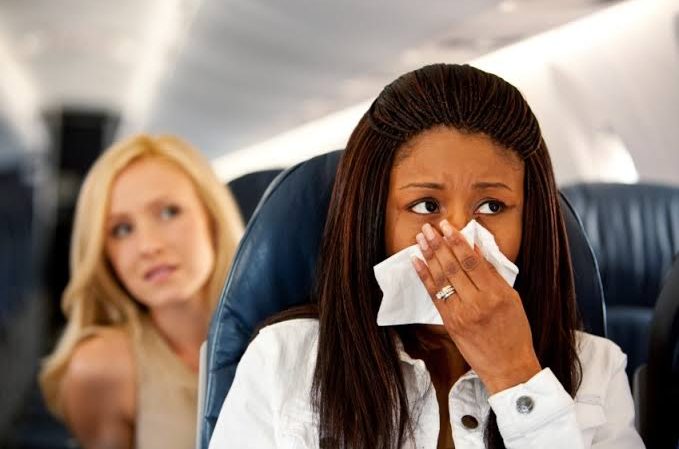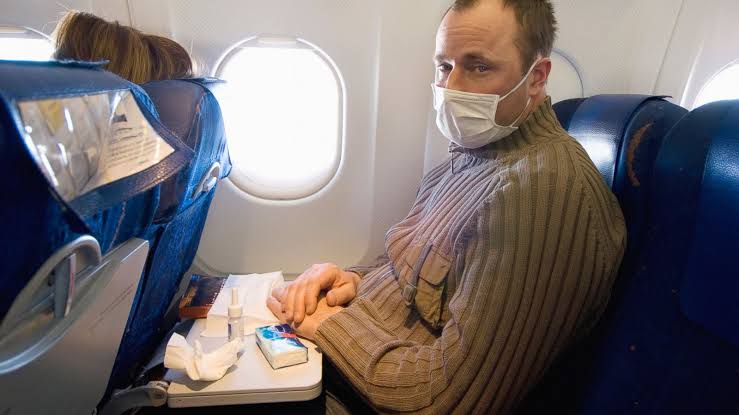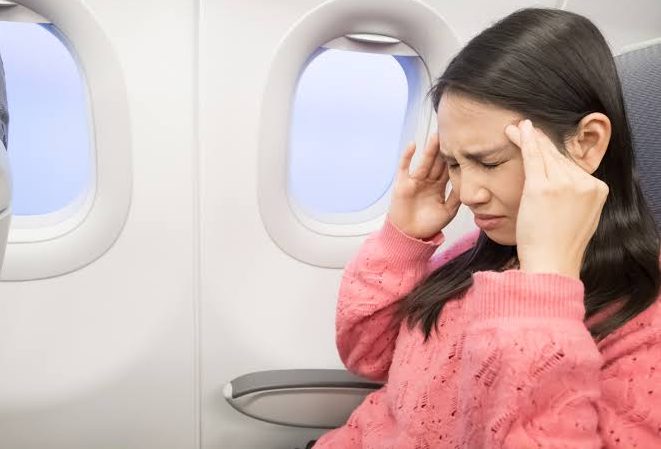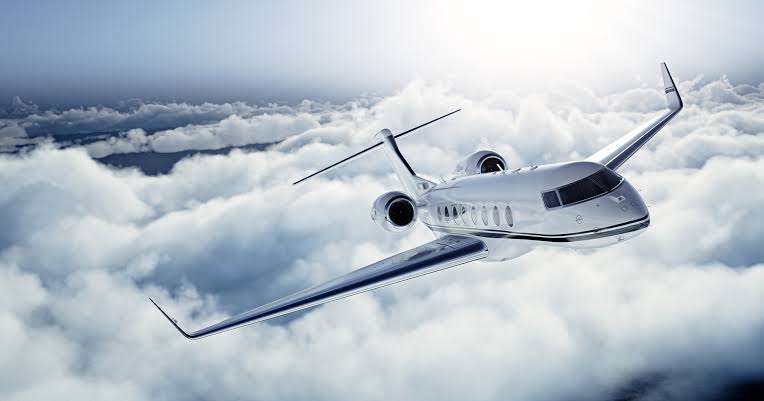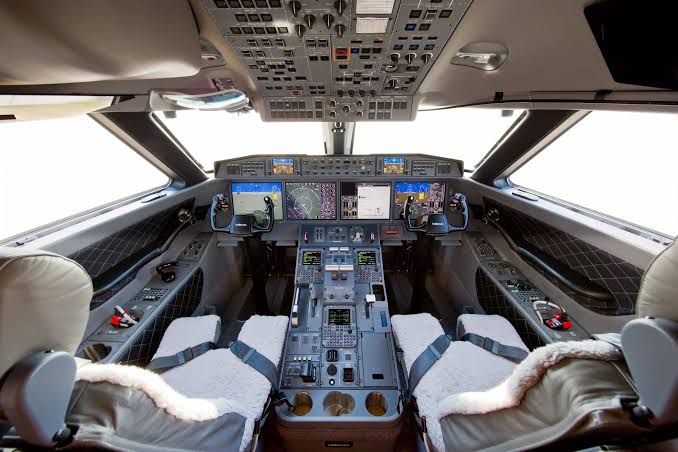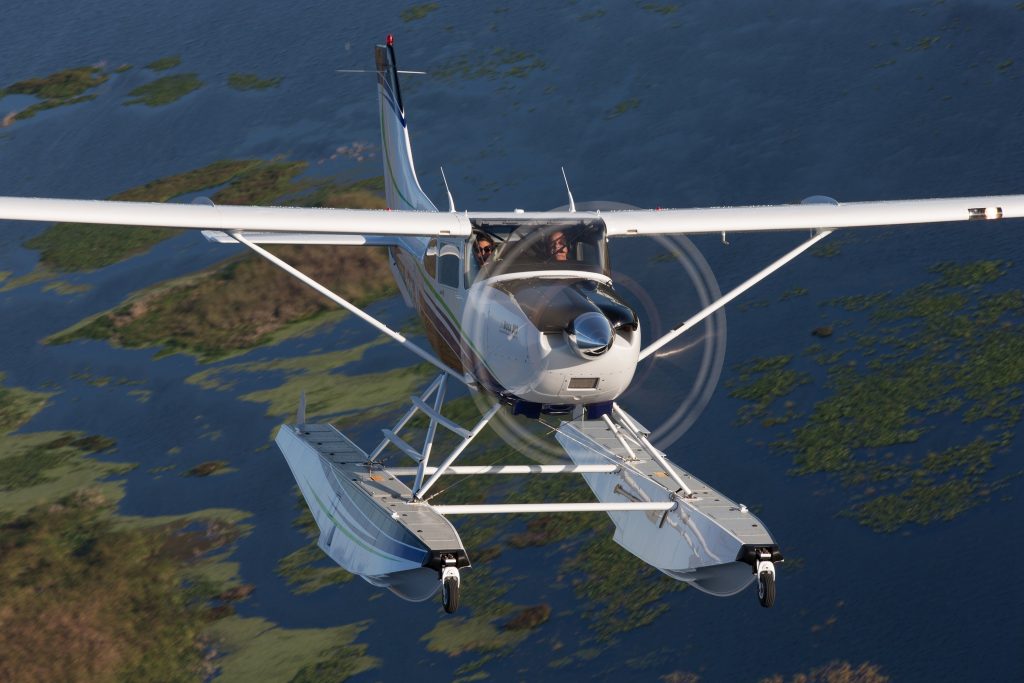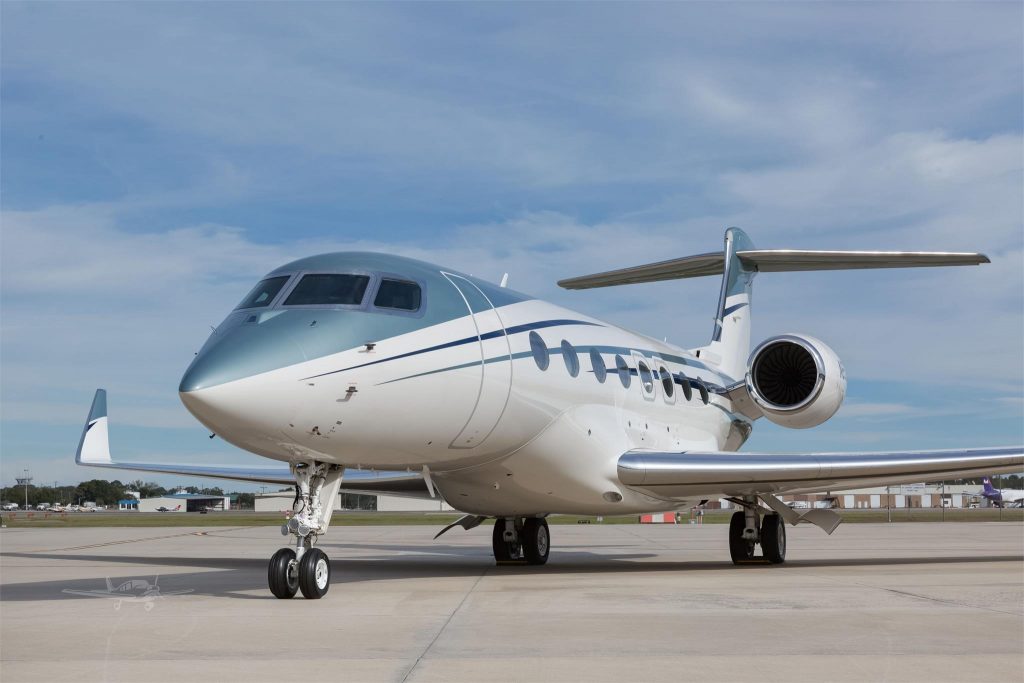The Impact of COVID-19 on Private Jet Travel: Long-Term Effects and Adaptations
 In the throes of an unprecedented global crisis, the landscape of private jet travel has experienced significant shifts and transformations. COVID-19’s impact on aviation has been particularly palpable in the world of private jet travel, instigating a ripple of changes that have irrevocably reshaped the fabric of the industry. This article delves into the long-term effects and adaptations brought about by the pandemic, unraveling the multifaceted response of the private jet industry, the changes in demand, operational modifications, as well as emerging trends in aircraft sales and acquisitions. As we journey through these paradigm shifts, we will also shed light on the evolving customer experiences, technological advancements, and regulatory landscapes. We stand on the precipice of a new era, where private aviation reimagines its role in the post-pandemic world.
In the throes of an unprecedented global crisis, the landscape of private jet travel has experienced significant shifts and transformations. COVID-19’s impact on aviation has been particularly palpable in the world of private jet travel, instigating a ripple of changes that have irrevocably reshaped the fabric of the industry. This article delves into the long-term effects and adaptations brought about by the pandemic, unraveling the multifaceted response of the private jet industry, the changes in demand, operational modifications, as well as emerging trends in aircraft sales and acquisitions. As we journey through these paradigm shifts, we will also shed light on the evolving customer experiences, technological advancements, and regulatory landscapes. We stand on the precipice of a new era, where private aviation reimagines its role in the post-pandemic world.
Initial Effects of COVID-19 on Private Jet Travel
One cannot discuss the impact of COVID-19 on private jet travel without underlining the drastic changes that marked the industry’s initial response to the pandemic. As countries worldwide began locking down, private aviation found itself front and center in a COVID-tinged world.
Surge in Demand for Repatriation Flights
As global travel corridors became disrupted, a significant surge in demand for repatriation flights was observed in the private jet sector. Stranded citizens, business executives, and tourists turned to private travel options as a means of safe, flexible, and efficient repatriation. According to industry insiders, this marked one of the most significant upticks in private jet usage since the financial crisis of 2008, bringing an unexpected boon to the industry.
Temporary Decline in Overall Flight Activity
Despite the noted surge in repatriation flights, an overarching temporary decline in overall flight activity was unsurprisingly observed. As governments imposed restrictions and companies embraced online conferencing tools, business flights, a significant portion of the private jet market, saw a steep fall. Similarly, private flights for leisure purposes also came to a near standstill, reflecting the overall global uncertainty about travel and restrictions.
Shift in Customer Demographics
The pandemic also brought about an intriguing shift in customer demographics within the private jet industry. A pronounced increase was noted in younger flyers and families choosing private jets, mainly driven by health safety concerns and the flexibility offered by private aviation. Whereas the typical profile of a private jet user was previously a male business executive aged between 40 to 50 years, industry reports suggest a broadening demographic spectrum with an increased number of female passengers, travelers aged under 40 years, and families with young children. This shift is expected to have long-term implications, potentially changing the face of private aviation in coming years.
To sum up, the initial impacts of COVID-19 on the private jet sector were immense but multifaceted. The quick pivoting of the industry to repatriation services showed its flexibility, while the shift in customer demographics signaled the necessity for future changes in the approach of industry players.
Private Jet Industry’s Response to the Pandemic
As the pandemic struck an unprecedented blow to the aviation industry, the private jet sector had to adapt quickly and effectively to chart a new course in an uncertain landscape.
Enhanced Health and Safety Protocols
 Ever so responsive, the private jet industry swiftly implemented enhanced health and safety protocols to ensure the well-being of passengers and crew. Companies adopted strict hygiene measures that exceeded standard guidelines, such as the deployment of High-Efficiency Particulate Air (HEPA) filters in aircraft and exhaustive sanitization procedures before and after each flight. Such initiatives underlined the sector’s commitment to prioritizing passenger health above all considerations.
Ever so responsive, the private jet industry swiftly implemented enhanced health and safety protocols to ensure the well-being of passengers and crew. Companies adopted strict hygiene measures that exceeded standard guidelines, such as the deployment of High-Efficiency Particulate Air (HEPA) filters in aircraft and exhaustive sanitization procedures before and after each flight. Such initiatives underlined the sector’s commitment to prioritizing passenger health above all considerations.
Flexible Booking Policies
The COVID-19 aftermath saw a significant uptick in the demand for flexible booking policies in private aviation. The sector was able to demonstrate its inherent flexibility by offering adaptable itineraries, accommodating last-minute changes, and reassuring customers with generous cancellation policies all as a response to the dynamic nature of the pandemic.
Technological Adaptations for Contactless Services
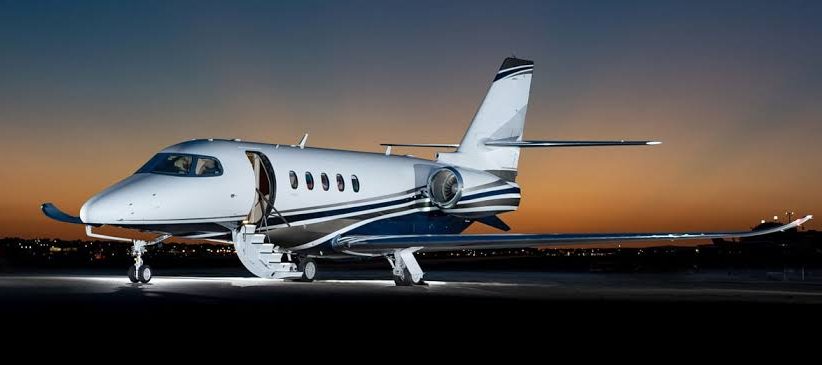 In response to the pandemic, the private jet industry ramped up technological adaptations for contactless services to ensure safe, seamless, and thoroughly sanitized travel experiences for passengers. Advanced digital tools were introduced for smoother booking processes, mobile boarding passes became the norm, and pre-flight health checks were digitized, paving the way for an almost entirely contactless charter experience. Such innovations helped elevate the private aviation sector to new heights, underscoring its resilience in the face of profound global challenges.
In response to the pandemic, the private jet industry ramped up technological adaptations for contactless services to ensure safe, seamless, and thoroughly sanitized travel experiences for passengers. Advanced digital tools were introduced for smoother booking processes, mobile boarding passes became the norm, and pre-flight health checks were digitized, paving the way for an almost entirely contactless charter experience. Such innovations helped elevate the private aviation sector to new heights, underscoring its resilience in the face of profound global challenges.
Long-Term Effects on Private Jet Demand
The spread of COVID-19 brought about drastic changes within the private jet industry. The long-term effects on private jet demand have seen significant transformation, marked by an increase in first-time users, a shift from commercial to private aviation for business travel, and changes in popular routes and destinations.
Increased Interest from First-Time Private Jet Users
One unexpected consequence of the pandemic was a sudden surge in interest from people who had never before considered private jet travel. With commercial airlines adopting stringent measures amidst COVID-19 fears, a new market emerged for private aviation. First-time private jet users began to see the manifold benefits of private jet travel, such as convenience, flexibility, and above all, safety. With exclusive accessibility and reduced risk of coming into contact with the virus, private jets became an alluring travel option.
Shift from Commercial to Private Aviation for Business Travel
The virus also incited a significant shift in the landscape of business travel – with businesses worldwide shifting from commercial to private aviation. Companies increasingly view private jets as a safer, more efficient mode of transport, ensuring their employees not only travel in complete safety but also reach their destination in the shortest possible time. The capacity to conduct confidential meetings aboard, adapt travel schedules on a whim, and avoid lengthy checks has cemented the position of private aviation in the business world.
Changes in Popular Routes and Destinations
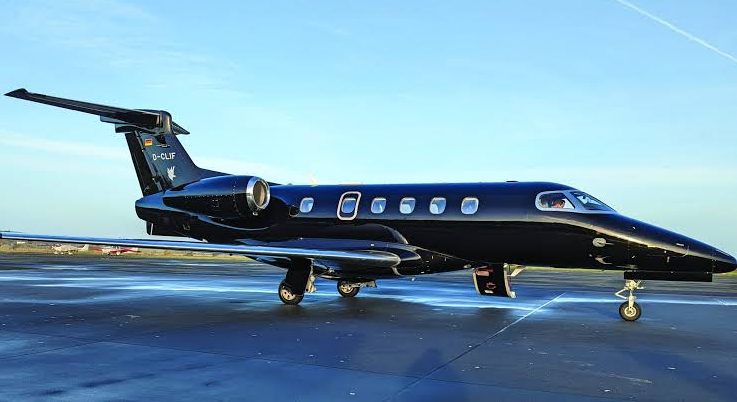 COVID-19 has also altered popular routes and destinations, reflecting the changing travel demands and restrictions in various regions. Many travellers now opt for ‘safer’ destinations with lower COVID-19 cases or ones with less strict quarantine regulations. As a result, private jet companies have had to adapt to these preferences, offering flights to alternative destinations that may have been less popular pre-pandemic. Likewise, the rise in remote work has seen an upswing in flights to holiday destinations, as people look to combine work and leisure in a fresh environment.
COVID-19 has also altered popular routes and destinations, reflecting the changing travel demands and restrictions in various regions. Many travellers now opt for ‘safer’ destinations with lower COVID-19 cases or ones with less strict quarantine regulations. As a result, private jet companies have had to adapt to these preferences, offering flights to alternative destinations that may have been less popular pre-pandemic. Likewise, the rise in remote work has seen an upswing in flights to holiday destinations, as people look to combine work and leisure in a fresh environment.
The pandemic has definitively sculpted a new trajectory for private jet demand, hinting at a promising future for the industry. By acknowledging the changes and swiftly adapting to the shifting market, private jet companies can not only survive but thrive in the post-COVID-19 era.
Impact on Aircraft Sales and Acquisitions
The global pandemic has not only altered the operational aspects of the private jet industry but has also considerably influenced aircraft sales and acquisitions. Let’s delve into how COVID-19 has affected the pre-owned aircraft market, new aircraft orders and deliveries, and the emerging trend in aircraft preferences.
Fluctuations in the Pre-Owned Aircraft Market
One of the most notable impacts of the pandemic lies within the pre-owned aircraft market. As global travel restrictions tightened and commercial airlines ground to a halt, many private jet seekers found solace in the pre-owned market. This surge in demand led to unprecedented fluctuations in prices. However, the rapid demand has also resulted in a limited supply of quality aircraft contributing to elevated prices in this sector. This trend underscores the resilience and adaptability of the pre-owned aircraft market in times of uncertainty.
Changes in New Aircraft Orders and Deliveries
Similarly, COVID-19 has also influenced new aircraft orders and deliveries. At the onset of the pandemic, many manufacturers faced delays in production and delivery due to health and safety protocols and supply chain disruptions. However, as the situation improved, manufacturers saw a rejuvenated interest, particularly from businesses seeking safer and more dependable travel solutions for their executives. This trend indicates an influx of new entrants into the world of private aviation, thus increasing new aircraft orders.
Emerging Trends in Aircraft Preferences
As the world acclimatizes to “the new normal,” certain changes have been observed in the types of aircraft in demand. For instance, a noticeable shift has been the preference towards long-range and larger cabin aircraft that provide ample space for social distancing while also allowing for prolonged and comfortable flights. Enviable features such as advanced air filtration systems that assure improved cabin air quality have also taken center stage in determining aircraft preferences.
In conclusion, the effect of COVID-19 on aircraft sales and acquisitions has been significant, instigating notable movements within the sector. But amid these transformations, the resilience and potential for growth within the private jet industry remain apparent. As the global landscape continues to evolve, it will further shape these trends, offering new opportunities and challenges within private aviation.
Operational Changes in Private Jet Companies
In response to the challenges precipitated by COVID-19, private jet companies underwent significant operational changes. These adaptative measures predominantly spanned workforce modifications, addressing supply chain disruptions, and the creation of sustainable financial strategies.
Workforce Adaptations and Remote Operations
As the pandemic impelled urgent adjustment measures, private jet companies began rethinking their workforce strategies. Realigning staff responsibilities to meet the shifting dynamics of the private jet market became a priority. Trainings were conducted to equip employees with the essential skills needed to manage the new normal – from maintaining strict health protocols to managing nuanced customer requirements effectively.
In addition, several companies swung towards remote operations to ensure critical business continuity while adhering to social distancing norms. The adoption of virtual collaboration tools seamlessly connected the globally distributed workforce, fostering a flexible and resilient operational model capable of enduring unprecedented situations.
Supply Chain Disruptions and Solutions
The private aviation industry heavily depends on a range of vendors for aircraft components, maintenance, and catering. As the pandemic crippled global commerce, companies struggled with severe supply chain disruptions. Recognising the seriousness of the situation, private jet companies started creating multiple supply chain contingency plans.
One successful approach was to diversify supply chain avenues, reducing over-reliance on single-source suppliers. Companies also started investing in digital supply chain management solutions, aimed at enhancing real-time visibility, tracking suppliers and streamlining logistics, thus improving overall operational efficiency.
Financial Strategies for Sustainability
A downturn in economy and travel restrictions imposed due to COVID-19 significantly affected the financial health of the entire aviation industry, including private jet companies. To weather this storm and ensure business sustainability, companies had to re-evaluate their financial strategies.
Many private jet companies started by making strategic cost reductions, especially in non-core areas. Others initiated proactive dialogue with stakeholders (like lenders and investors) for financial relief measures. Moreover, increasing the portfolio of flexible charter options played a critical role in attracting a broader customer base, offsetting some revenue losses.
In conclusion, although the COVID-19 has brought severe turbulence for private jet companies, it was the adaptive operational shifts that proved instrumental in navigating through these tough times. Undoubtedly, these changes will continue to mould the future of private aviation as the industry takes flight in the post-pandemic world.
Regulatory Landscape and Compliance
The COVID-19 pandemic has resulted in drastic changes to the regulatory landscape of the aviation industry, significantly affecting private jet travel. These changes have compelled operators and passengers alike to adapt to new travel restrictions, documentation requirements, and operational protocols. From a sustainability viewpoint, the industry also had to focus on environmental regulations.
New Travel Restrictions and Documentation Requirements
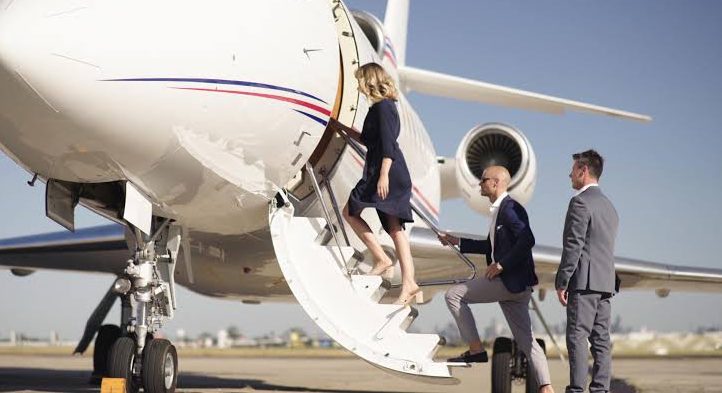 The onset of the pandemic saw an unprecedented tightening of global travel restrictions. Countries across the globe imposed flight bans, quarantines, and PCR testing requirements to curb the virus’s spread. In response, private jet operators had to navigate a complex web of ever-changing regulations and guidelines, both domestically and internationally. Being able to adhere to these new compliance requirements proved to be a crucial success factor. Pre-travel screening and documentation of passengers became a standard operating procedure. All passengers had to provide proof of a negative COVID-19 test taken within a specified time period before their flight and fill out forms for contact tracing purposes.
The onset of the pandemic saw an unprecedented tightening of global travel restrictions. Countries across the globe imposed flight bans, quarantines, and PCR testing requirements to curb the virus’s spread. In response, private jet operators had to navigate a complex web of ever-changing regulations and guidelines, both domestically and internationally. Being able to adhere to these new compliance requirements proved to be a crucial success factor. Pre-travel screening and documentation of passengers became a standard operating procedure. All passengers had to provide proof of a negative COVID-19 test taken within a specified time period before their flight and fill out forms for contact tracing purposes.
Changes in International Operations
With international travel restrictions in place, private jet companies had to adjust their operational strategies accordingly. Different countries had varying degrees of openness, causing shifts in popular private jet routes. Companies found themselves coordinating international flight permits, dealing with grounded fleets, and managing quarantine regulations for crew members. It was also crucial for operators to stay abreast of evolving policies and adjust flight plans as needed. With some countries offering travel corridors or “bubbles,” there was a need for flexibility and resilience in operations.
Environmental Regulations and Sustainability Initiatives
While managing the fallout from the pandemic, the private jet industry also faced growing scrutiny over its environmental impact. Many airlines, including private jet operators, had to align with the Carbon Offsetting and Reduction Scheme for International Aviation (CORSIA), which aims to stabilize CO2 emissions. Additionally, environmental regulations have spurred innovative sustainability initiatives in the industry, including the switch to Sustainable Aviation Fuel (SAF) and the development of more fuel-efficient aircraft. Despite the strain on resources, many operators have taken significant steps towards sustainability, acknowledging their role in combating climate change during these challenging times.
Technological Advancements Accelerated by COVID-19
The turbulence that COVID-19 brought upon private jet travel has been met with a set of technological advancements capable of reshaping the industry significantly.
Contactless Technologies in Private Aviation
The practices of private aviation have seen a drastic evolution, heavily leaning towards contactless technologies in the wake of COVID-19. These have been introduced both in-flight and at ground facilities, aiming to minimize contact points and ensure passenger safety. Essentially, passengers can now arrange their entire flight, from booking to debarking, without any physical interaction. Technologies such as digital identity verification, biometrics, scanning for boarding passes, and smart luggage tags have worked their way into the new-age private jet travel.
Enhanced Booking and Management Platforms
Enhanced booking and management platforms have brought about a new level of simplicity to private jet travel. Detailed online platforms have emerged, enabling an interface for passengers to conduct an end-to-end booking process. This includes choosing the aircraft type, scheduling flight timings, food preferences, and even ground transportation arrangements. Passengers can track their flight’s progress through these platforms, offering enhanced transparency. Furthermore, these platforms also allow for efficient crisis management, making provisions for last-minute alterations or cancellations.
Advancements in Air Purification Systems
 COVID-19 also spurred advancements in air purification systems used in private aviation. To ensure that the in-flight environment is as safe as possible, several private jet companies have integrated High-Efficiency Particulate Air (HEPA) filters into their aircraft, identical to those used in hospital environments. These filters are capable of capturing up to 99.97% of airborne particles, including bacteria and viruses. Some aircraft have also implemented negative pressure isolation units, ensuring that the air in the cabin remains separate from the rest of the aircraft, further increasing the safety of the passengers and crew.
COVID-19 also spurred advancements in air purification systems used in private aviation. To ensure that the in-flight environment is as safe as possible, several private jet companies have integrated High-Efficiency Particulate Air (HEPA) filters into their aircraft, identical to those used in hospital environments. These filters are capable of capturing up to 99.97% of airborne particles, including bacteria and viruses. Some aircraft have also implemented negative pressure isolation units, ensuring that the air in the cabin remains separate from the rest of the aircraft, further increasing the safety of the passengers and crew.
These technological adaptations ensure a safer, more efficient travel experience and highlights the industry’s commitment to the well-being of its passengers. Adapting swiftly to the need of the hour, private aviation has transformed its models and reinforced its place in the future of global transportation.
Customer Experience Transformations
The COVID-19 pandemic has birthed revolutionary changes in the private aviation sector, heavily influencing the customer experiences during private jet travel. Now more than ever, private jet companies focus on optimizing passengers’ comfort and satisfaction, and they do this through personalized services, a renewed emphasis on health and wellness, and the use of digital solutions to ease and streamline travel processes.
Personalized Services and Tailored Experiences
COVID-19 has redefined the essence of luxury in private jet travel with a major shift towards highly personalized services and tailored experiences. Private charter companies, noticing the increased demand for personalized experiences, have amplified their efforts to understand and cater to their client’s specific needs, from customizing in-flight catering to tailoring flight plans according to client preferences. Concierge services have gained prominence throughout the industry, underscoring the truly bespoke nature of private travel. Priority is given to creating a unique passenger journey, diminishing the stress of travel, and delivering a comfortable yet exclusive experience.
